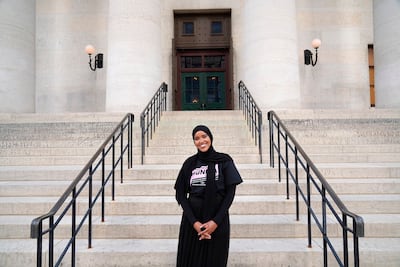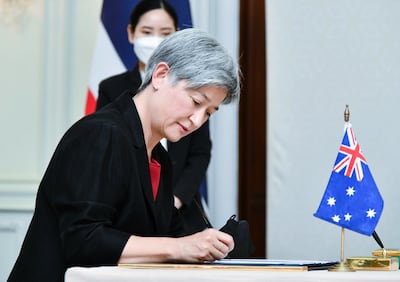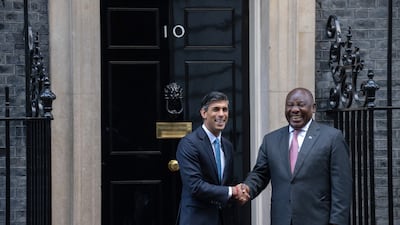In the days and weeks after 9/11, anger in the US among those who wrongly thought that the terrorists really had been acting in the name of Islam ran high. A Sikh man, Balbir Singh Sodhi, was the first of nearly 20 Arabs and South Asians to be killed by racists and white supremacists out to target people who “looked” Muslim. In the recent midterm elections, however, a record number of Muslim candidates – 82 – won seats at the local, state, federal and judicial levels. Council on American-Islamic Relations executive director Nihad Awad said that the US was “witnessing the next step in the American-Muslim community's political transformation from marginalised voices … to decision makers".
In Britain in the 1980s, a significant portion of right-wing voters supported the continuance of the white separatist apartheid regime in South Africa, and then Conservative prime minister Margaret Thatcher was known to be an admirer of the former Tory cabinet minister Enoch Powell, despite the latter being notorious for his racist 1967 “rivers of blood” speech. Recently, though, when South African President Cyril Ramaphosa went to London for a state visit, he met not only King Charles, but, as a Malaysian friend pointed out to me, three politicians of South Asian heritage – Prime Minister Rishi Sunak, Home Secretary Suella Braverman and London Mayor Sadiq Khan – and Foreign Secretary James Cleverly, who like Mr Ramaphosa, is black.

The “White Australia” policy, which aimed to stop non-Europeans and especially Chinese settling in the country, ran from 1901 right up until 1973. Second World War prime minister John Curtin was explicit about its purpose: “This country shall remain forever the home of the descendants of those people who came here in peace in order to establish in the South Seas an outpost of the British race,” he said. And yet here we are in 2022, with Australian Foreign Minister Penny Wong being the daughter of a Chinese-Malaysian father, and had previously become the country’s first Asian-born cabinet minister in 2008.
Ethnic minorities were such a rarity in rural Ireland in the 1950s that when my great aunt opened her door to a black travelling salesman one day, she said it was a shock – as it was the first time in her life that she’d ever met someone who wasn’t white. Fast forward to today, and the country is entirely at ease with the fact that its former prime minister and current Deputy Prime Minister, Leo Varadkar, is half Indian.
We are often warned to be wary of the rise of extreme ethno-nationalism in North America and Europe. I myself have raised with concern how the far right appears to a great extent to have been normalised through their success in posing as the true representatives of ordinary people, and through their participation in government in many countries.

But in a world that often seems to be bereft of good news, it is worth remembering that some societies have come a very long way in a relatively short time when it comes to matters of race and acceptance of diversity. There were those who wondered if Britain was ready for its first non-white prime minister. In fact, the most controversial aspect to Mr Sunak turned out to be that his wife is a billionaire who didn’t pay UK taxes on her overseas income until recently. As a child in Australia, Ms Wong would have seen people like her as being barred from the senior post she now holds. Ireland has made enormous changes in how inclusive it is, and how accepting of differences. What’s encouraging to note is that in many countries where it would once have been said that a person of a particular ethnicity could “never” be elected to high office, that is exactly what has happened. Given time, many societies prove to be much more tolerant than previously thought.
Of course, that’s not true of everyone. Despite the record number of Muslim representatives being elected in the US, CBS describes Muslims facing “rampant hate and discrimination”, with one survey finding that 26 per cent of black Muslims and 32 per cent of Asian Muslims experienced or witnessed a hate crime in the first half of 2022 in New York City. It is disturbing in the extreme when a former (and possibly future) president, Donald Trump, dines with a white nationalist who is a holocaust denier and avowed anti-Semite, and confronted with the truth, refuses to utter a word of criticism of his guest.
These prejudices, the strength with which they are held, and the nonchalance displayed by prominent people who should rightly condemn them, must concern any decent human being. As the father of two Muslim and one Jewish children, they worry me particularly – not least as trends in America have a habit of spreading around the globe.
But when milestones in diversity such as the ones I mentioned above are passed, we should still mark them. Not in too self-congratulatory a manner, perhaps, as there is still much work to be done, and extremists and hatemongers have long escaped being beyond the pale in too many parts of the world. Raise maybe not three but two cheers then. They still represent hope that change for the better is possible – because they prove it.


